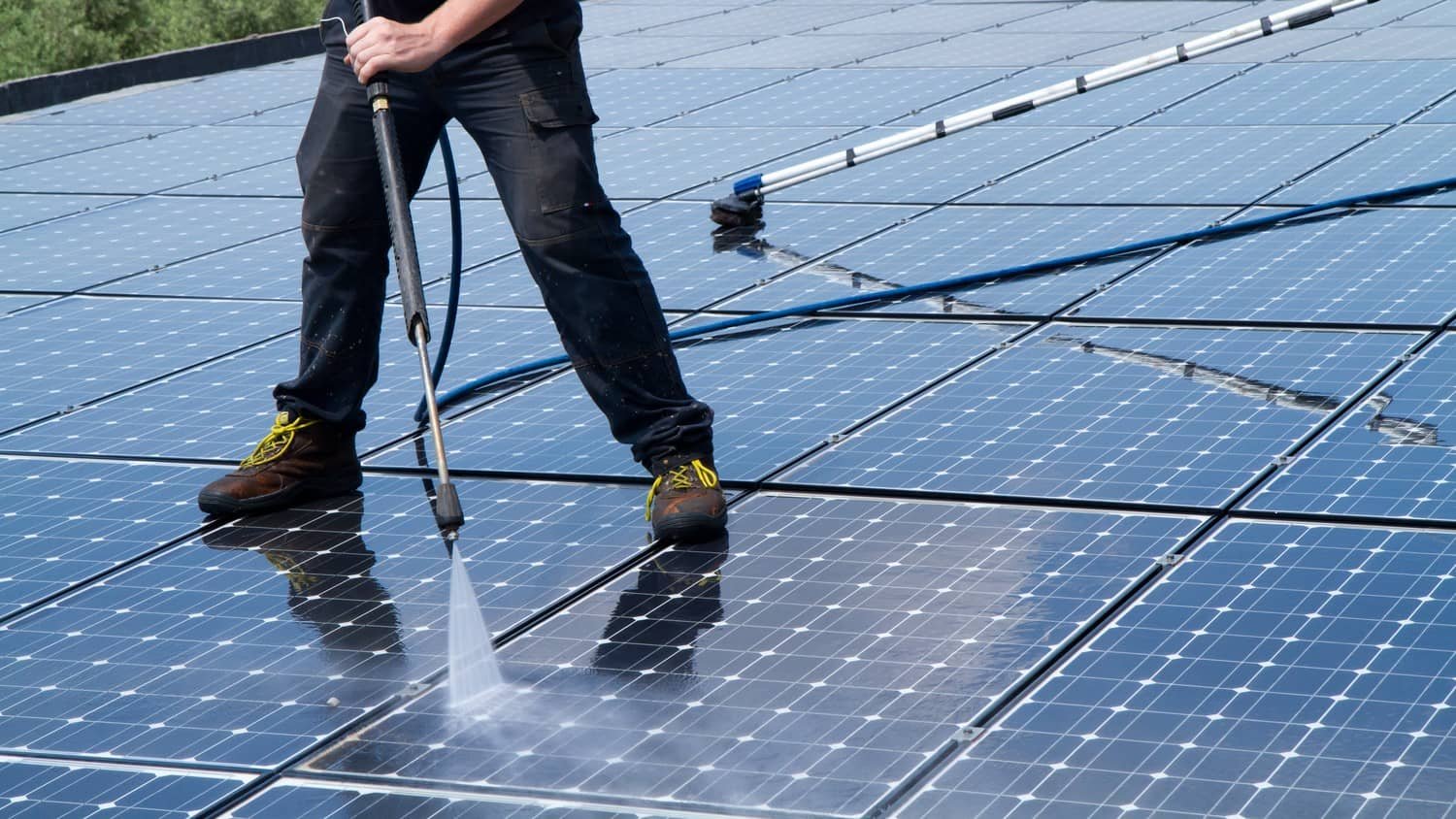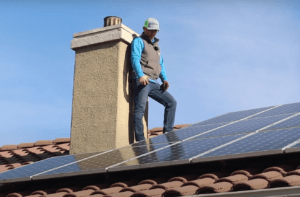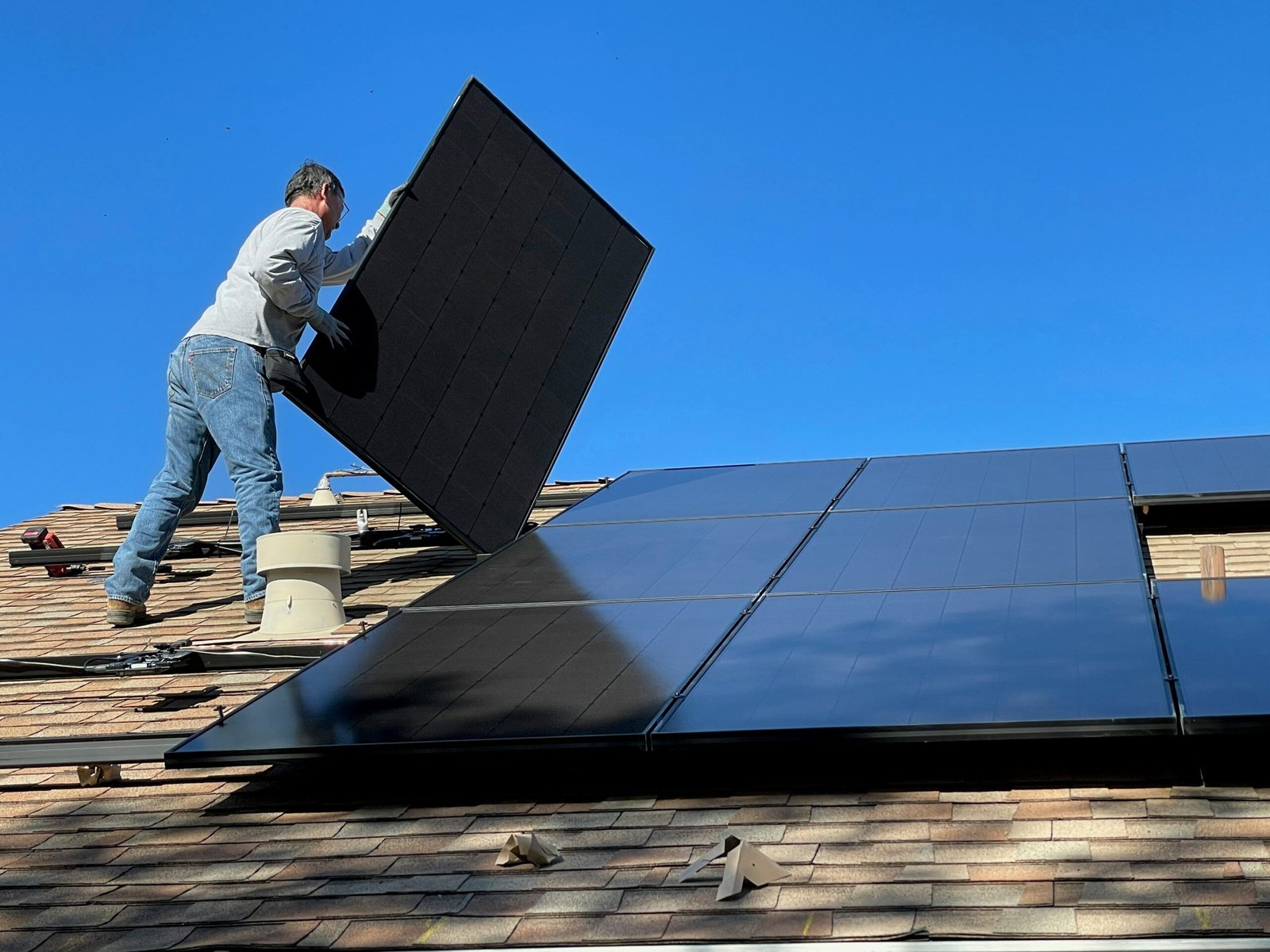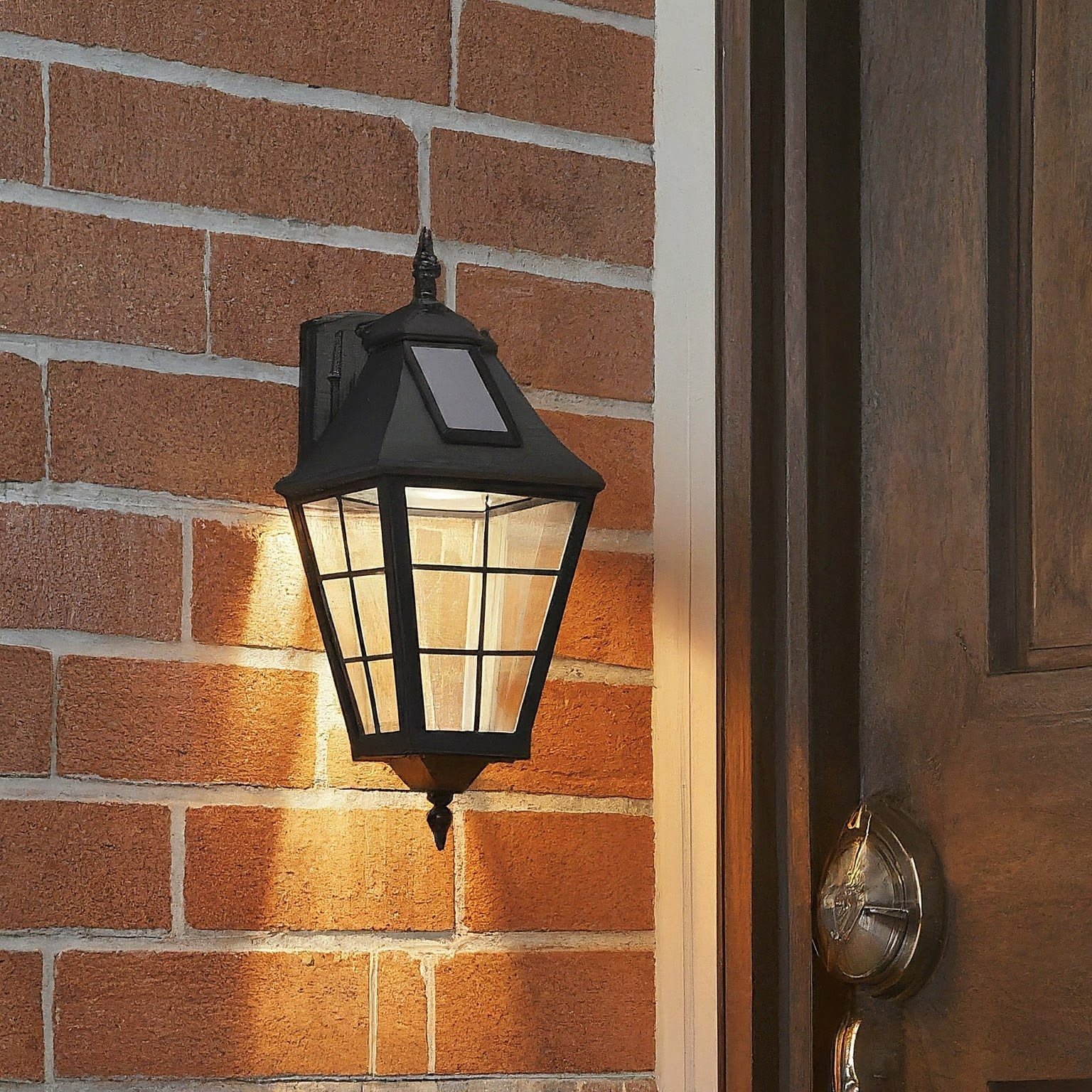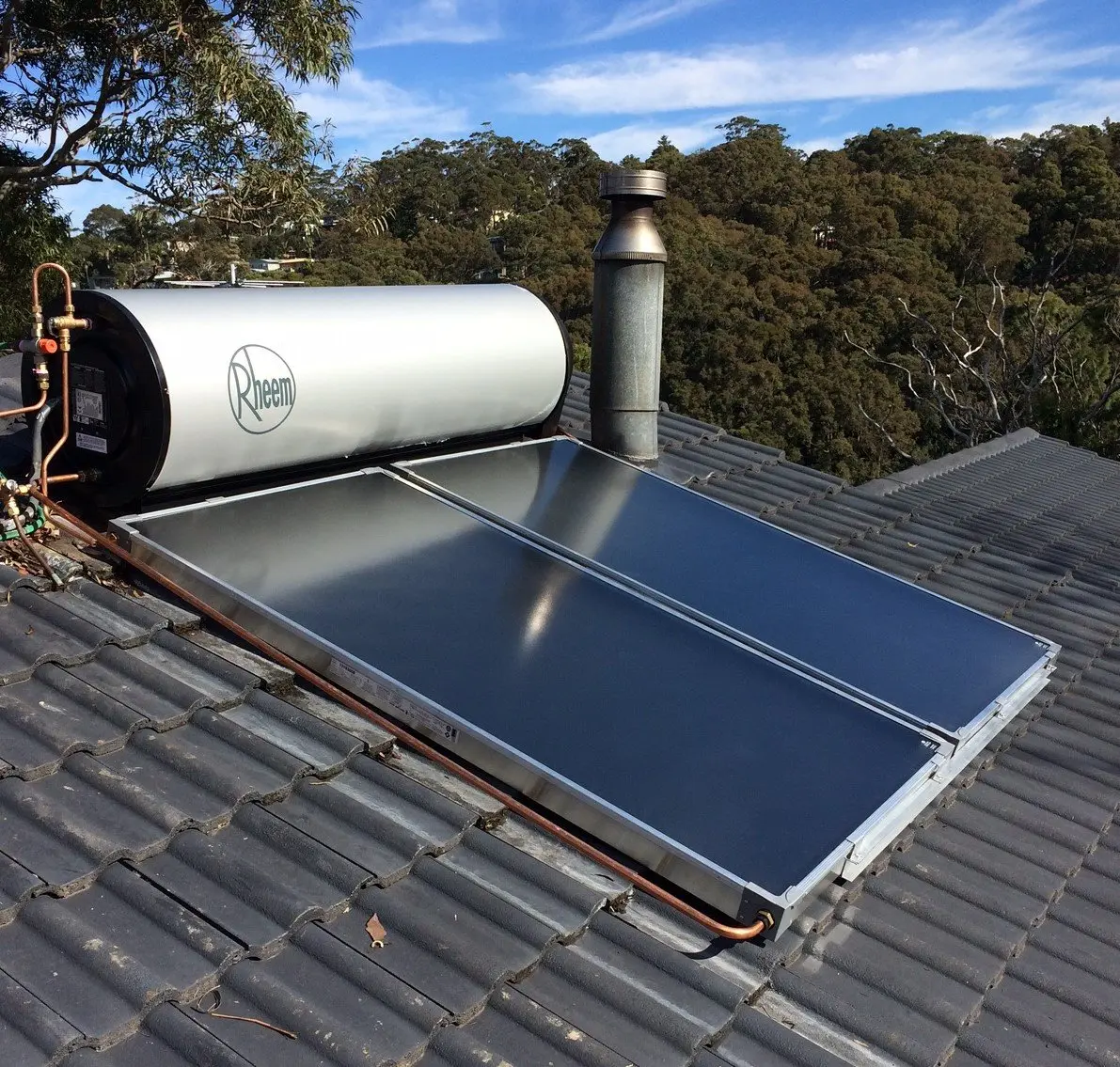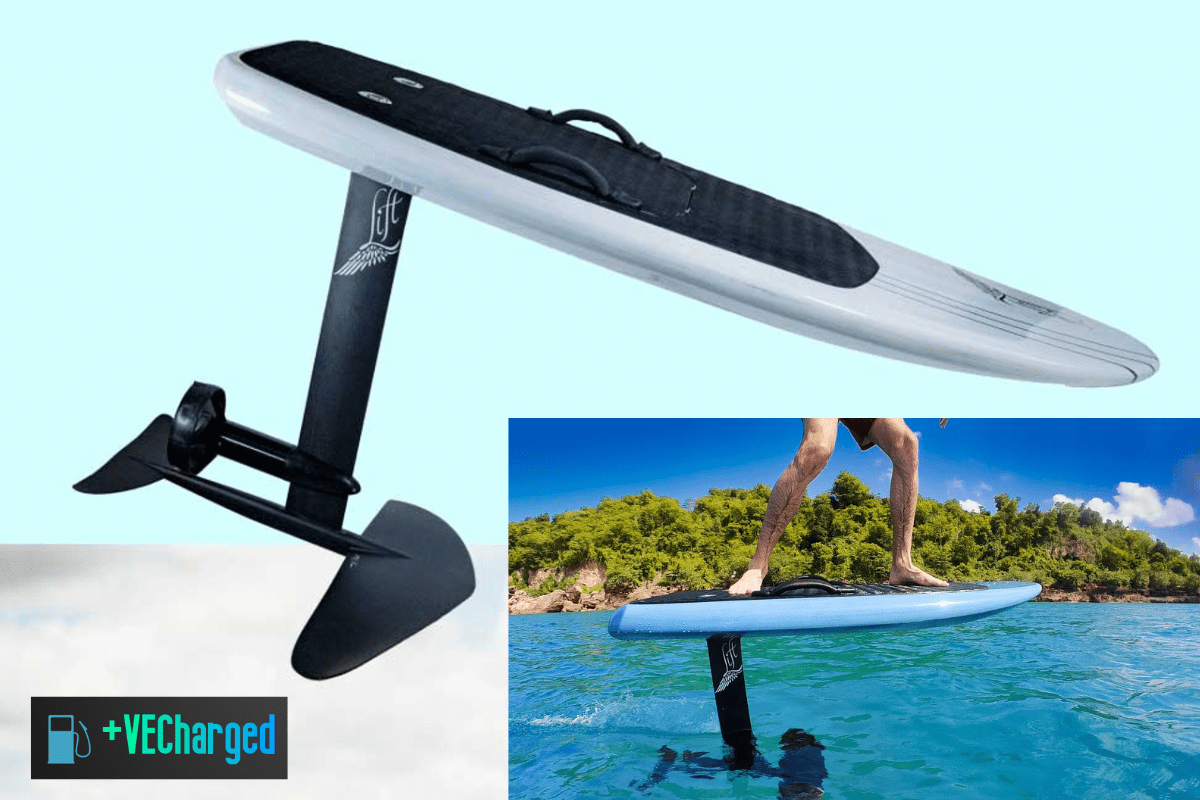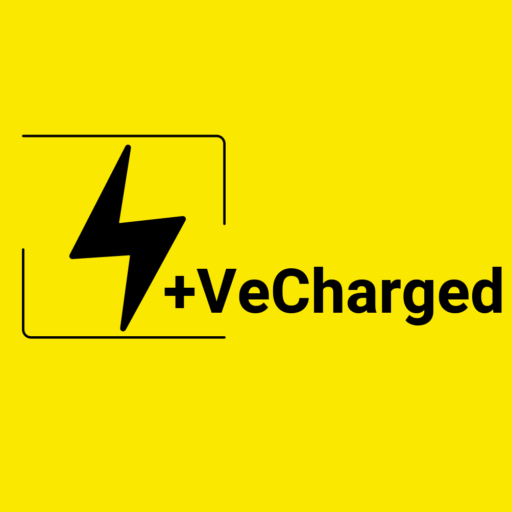How to Clean Solar Panels Safely & Effectively (DIY Guide)
Solar panels are fantastic eco-friendly power generators, but like any system exposed to the elements, they require occasional cleaning to maintain optimal efficiency. Dust, dirt, bird droppings, and even pollen buildup can reduce the amount of sunlight reaching the photovoltaic cells, impacting your energy production.
This guide equips you with the knowledge and steps for safe and effective solar panel cleaning, ensuring your sunshine collectors keep generating clean power at their full potential.
When to Clean Your Solar Panels:
- Generally: Most manufacturers recommend cleaning your solar panels at least once or twice a year.
- Environmental Factors: Consider cleaning more frequently if you live in an area with:
- High dust or pollen levels
- Heavy bird droppings
- Proximity to industrial areas or construction zones
- Frequent rain (may wash away most dirt)
- Performance Monitoring: Keep an eye on your solar panel system’s performance data. A noticeable drop in energy production compared to historical data or similar weather conditions can indicate the need for cleaning.
Safety First:
- Turn Off the System: Before starting any cleaning, ensure your solar panel system is completely shut down from the inverter. This can often be done through a disconnect switch.
- Work During Cool Weather: Avoid cleaning solar panels during the hottest part of the day. The heat can cause the water to evaporate quickly, leaving streaks and potentially harming the panels. Early mornings or evenings are ideal.
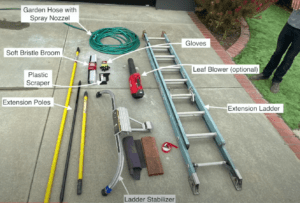
- Use Proper Equipment: Avoid harsh chemicals or abrasive cleaning tools. You’ll need:
- Soft sponge or microfiber cloths
- Long-handled squeegee (optional)
- Garden hose with a gentle spray nozzle (avoid high-pressure washers)
- Bucket filled with clean, lukewarm water (you can add a small amount of mild dish soap)
- Work Safely: If your solar panels are on a roof, ensure you have proper safety gear like slip-resistant shoes and a harness if necessary. It’s always best to work with a partner for any cleaning on a roof.
Cleaning Steps:
1. Pre-Rinse:
- Use the hose with a gentle spray nozzle to loosen and remove any loose dirt, dust, or debris. Start at the top of the panels and work your way down.
2. Cleaning Solution:
- Dip your sponge or microfiber cloth in the soapy water and gently wipe the panels in a circular motion. Work in sections and rinse the cloth frequently to avoid spreading dirt.
3. Final Rinse:
- After cleaning all the panels, give them a final rinse with clean water using the hose. Ensure all soap residue is removed.
4. Squeegee (Optional):
- If using a squeegee, gently pull it down the panels to remove any excess water and avoid water spots.
Additional Tips:
- Clean on Cloudy Days: Direct sunlight can cause the water to dry too quickly, making cleaning less effective.
- Work Systematically: Clean your panels in sections to ensure you don’t miss any spots.
- Inspect Regularly: During cleaning, take a moment to inspect your panels for any cracks, damage, or loose connections. Report any issues to a qualified solar panel technician.
- Professional Cleaning: For large or high-mounted solar panel systems, consider hiring a professional cleaning service with the appropriate equipment and safety protocols.
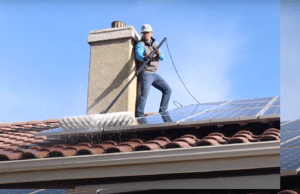
By following these steps and safety precautions, you can keep your solar panels clean and operating at peak efficiency, maximizing your clean energy production and enjoying the sunshine’s power!

Suhas Shrikant is the founder of Vecharged and an engineering enthusiast specializing in high-power off-grid solar systems. He has designed and built over a dozen custom systems and uses his hands-on, field-tested experience to create Vecharged’s expert guides and reviews.

